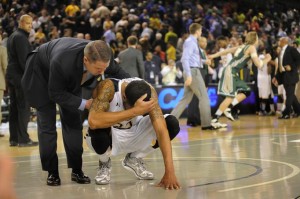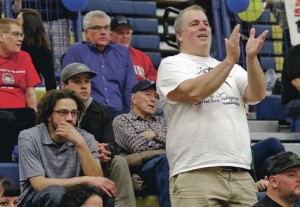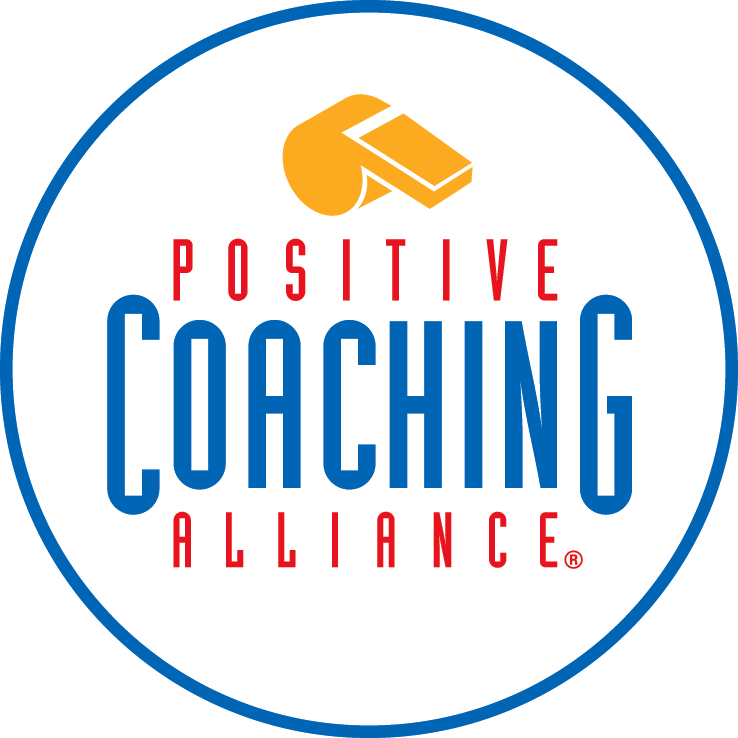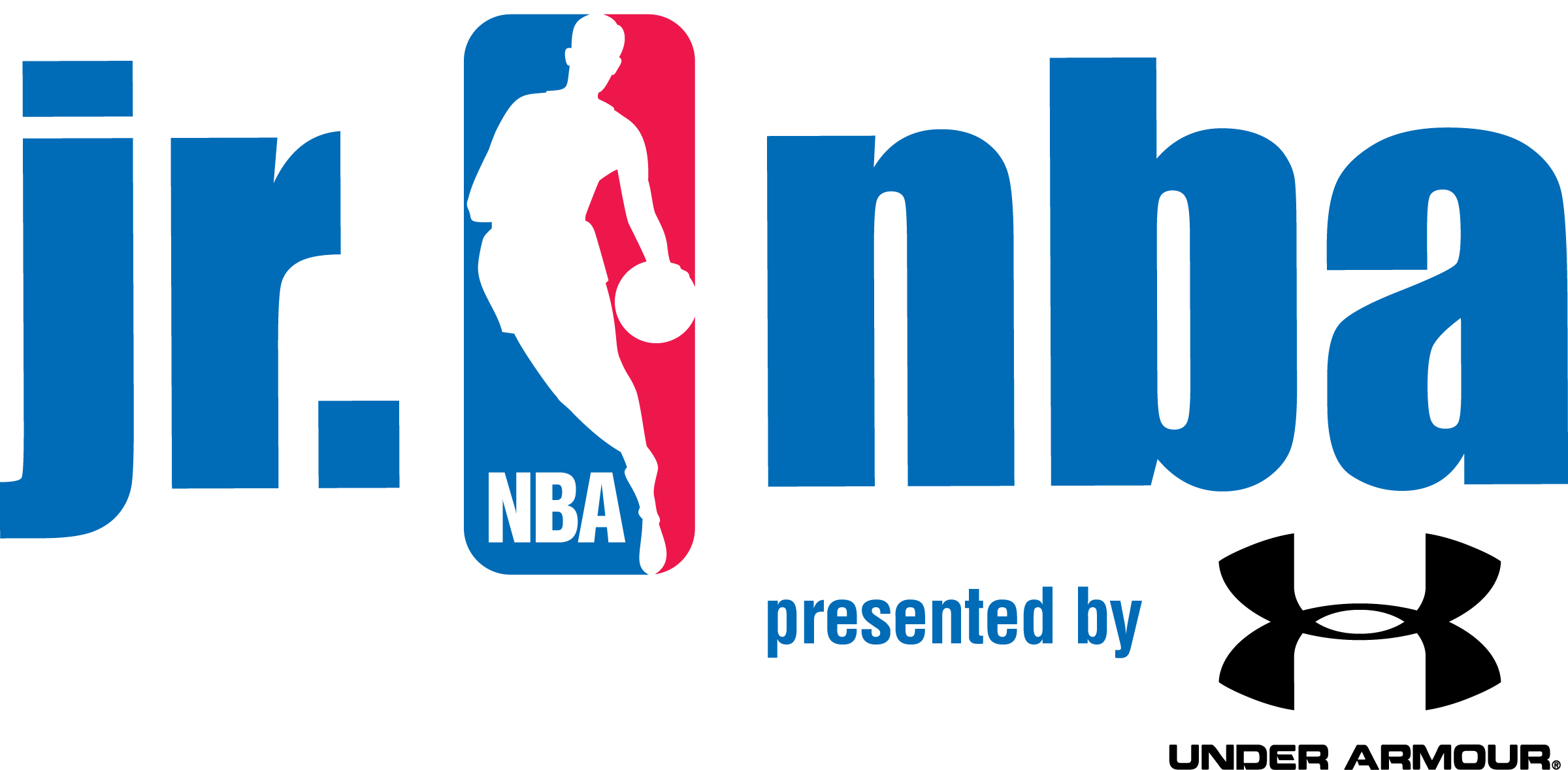
6 SECRETS TO BEING AN AWESOME BASKETBALL PARENT FROM LIFTYOURGAME.NET
If your kids are aspiring NBA stars, you know what basketball means to them.
But what’s your role in supporting a youth player? How can you help them play to their full potential?
Whether you’ve played the game before or not, here are 6 secrets to being an awesome basketball parent.
1. Give constant support
As an aspiring athlete, the more seriously you take the sport, the sweeter your wins are. But at the same time, failures taste much more bitter.
Kids need parents who can provide that extra level of emotional support as they begin their basketball career. There’s so much already going on in the average kid’s life with school/homework, and playing competitive basketball can add an extra level of stress.
Your job is not only to congratulate your child when they achieve their goals (without inflating their ego too much!) but also to allow them to vent when things don’t go their way.
It’s crucial to attend as many games as possible, especially for kids under the age of 12. At this stage, children look to their parents for guidance, and seeing you in support will go a long way in helping their confidence.
2. Mentorship and advice
Your kid doesn’t have an agent – not yet at least!
Whether you’ve played basketball before or not, it’s still your job as a parent to provide advice where needed.
It’s not enough to just support the decisions they make. As a parent, you have the power to take a step back, and look at the bigger picture. You might be able to help your son or daughter make a better decision about which team to play on, which position to play, or what skills to focus on in the off-season.
Remember though, your kid needs to be able to control their own destiny. While you can provide advice, if you take complete control, it gets much easier for your child to become frustrated and demotivated, especially if they disagree with you.
3. Provide the opportunity to play – as much as possible
Even for parents whose kids don’t play basketball, it can feel like you’re a full-time taxi service a lot of the time.
If your kids take their basketball seriously, you’ll not only have to get them to games and practice, but also potentially to tryouts and training camps as well.
However, you also want to give your kids the opportunity to practice on their own, if at all possible.
If you don’t have a park with a decent half-court near you, it’s always possible to put a freestanding portable hoop in the yard or on the driveway. Simply pack it away when winter rolls around, unless you have the space and sunshine to keep it up all year round.
4. Don’t overdo it
No matter what sports your kids play, you don’t want to be the crazy soccer mom.
Never shout at anyone on the court, especially not the refs, and don’t coach your kids from the sidelines. Not only is doing this extremely embarrassing for your kid, it can also make them want to stop playing basketball.
Remember, your kids should have their own motivation to play the sports that they do. Otherwise, they won’t have any enthusiasm for the game.
This is why parents are often told to focus on their kids’ enjoyment of the sport, rather than winning, especially for younger players.
5. Maintain good relationships
Believe it or not, your child will have a much easier time on and off the court if you’re able to maintain good relationships with the key people in their team – especially the coach.
This isn’t just about coaches picking players whose parents are nice to them.
By keeping in constant contact, you can learn an incredible amount about where your kid might be able to improve their game. Often, some information isn’t shared with the player directly. You might find out for example what type of team the coach wants to build, and where he sees your kid fitting in.
Surprisingly, this applies to everyone – from parents whose kids are starting their first season, to college-level athletes.
Also, if you don’t have much of a basketballing background, but show that you care about the sport (and your child’s participation), you should be able to learn a lot from their coach about the game, and how the high school/college sports system works as your kid grows older.
6. Managing the balancing act
If your kids are really talented, and want to one day play in the NBA, the logical reaction to this as a parent might be “but what if it doesn’t work out?”.
This is a perfectly reasonable response, because the truth is that the majority of kids don’t make it to the big league.
However, you obviously can’t crush your kid’s hopes and dreams like that. Doing so will crush their confidence – not just in sport, but in their studies and other interests as well.
Your job is to maintain the balancing act. It’s by no means easy!
Just remember, basketball has a whole heap of other benefits apart from the possibility of going pro. It enables your child to develop their teamwork and communication skills, allows them to learn about the importance of hard work and dedication, and last but not least, gives them the chance to burn off all their excess energy.
Basketball on the Edge – My Season Ended in Disappointment by PGC Basketball

If you have ever played sports you have had disappointments. I know that I have losses in my playing and coaching career that stick with me to this very day. Only one team each year gets to end their season with a win. With the Final Four upon us I think this article will touch a nerve and inspire players, coaches, and parents to keep striving to be their best despite the near certainty that you will experience disappointment along the way.
Click here to read the article from PGC Basketball
Click here to register for one of our upcoming programs!
Sign up now to get a “Head Start” on your competition with our free basketball tip of the day delivered straight to your inbox. Click below, enter your email and we’ll also send you our E-Book, “Mental Toughness, Improve Your Brain – Improve Your Game”.
Basketball on the Edge – An Open Letter to the Out of Control Sports Parent Sitting Next to Me in the Stands by @CTGProjectHQ John O’Sullivan

The open letter in this article was written by Karen, a mom and a Changing the Game Project follower who has grown frustrated and disgruntled with the current state of youth sports, and the fact that she cannot go and watch her kids compete in peace. She asked us to publish it and to remain anonymous. We thought it was pretty good advice, so we decided to share. Thanks, Karen, and thanks to all those parents out there who realize that the game is supposed to be for the kids. – John O’Sullivan
Dear Out of Control Sports Parent,
You.
Yeah, you.
The one shouting “Get the rebound!!!” to your kid. The one with the heart palpitating so loudly that you cannot contain yourself. The one yelling and complaining about the coach. The one hollering at the 13-year-old referee. The one angry at my kid for making a mistake. The one hollering at the kids who made a mistake running the scoreboard in a recreational tournament in a meaningless pool play game.
Yeah, you, the one whose spouse won’t sit next to you during the game…
Click here to read the rest of the letter!
Click here to register for one of our upcoming programs!
Sign up now to get a “Head Start” on your competition with our free basketball tip of the day delivered straight to your inbox. Click below, enter your email and we’ll also send you our E-Book, “Mental Toughness, Improve Your Brain – Improve Your Game”.
Basketball on the Edge – How Much Should I be Cheering for My Young Player During Games? – Vintage Edition

We’ve all heard parents yelling and cheering for their kids at games. “C’mon William, bend your knees. Put this free throw in.” William glances out of the corner of his eye toward Dad in the bleachers. What happens next? Maybe William has shot hundreds of free throws this past off-season and he steps up to the line and drills home the free throw. Or maybe he hasn’t put in the time and that leads to him feeling pressure and missing as a result. Maybe William can tune out his Dad. Maybe his Dad’s yelling annoys William or makes him mad or maybe he loves it. Who knows? I have already written about why you shouldn’t coach from the stands, but what about cheering or yelling encouragement? Maybe just something as simple as “Go William!”
What level of cheering helps your young player do their best in a competitive environment? I am going to relate several stories from my own life. The first goes back to my playing days. My parents were at just about every game I ever played all the way through college. I don’t remember one thing they ever said from the stands. I don’t remember hearing them cheer (although I know they did). Whatever was going on in the crowd I was able to tune out and focus on what I needed to do out on the court. Didn’t matter the size of the crowd, home or away, I just wasn’t paying attention. People could have been cheering or coaching from the stands and I probably would have been oblivious.
Secondly, I have learned from watching and coaching my own kids (from the bench not the stands) what their preferences are when it comes to cheering. My daughter does not like to have any attention placed on her. There were times when she was younger that my wife would call her name and cheer very loudly for her during games. My daughter clearly did not like that kind of attention. My wife thought she was encouraging her, but really the cheering was a distraction for my daughter. It made her self-conscious and less likely to play her best. We’ve learned not to cheer for her other than an occasional clap when something goes well for her or her team. Silent observation is what allows my daughter to be at her best.
Conversely, my son enjoys attention and being in the spotlight as a general rule. He is much more likely to be uplifted when someone cheers for him or calls his name. He’s not going to turn red and become less aggressive when he hears someone cheering for him the way my daughter might. He is fine with more cheering and encouragement.
The takeaway from these stories is that you have to know your kid and what they can handle when it comes to cheering for them during games. I’ve learned to sit (or stand) silently while I am watching my kids play. I’ve found that’s what they want and what helps them be at their best. It also helps me to remember that the game is about them and not about me. When I am coaching them, it’s a different story. I probably coach them even harder than I do my other players. But that’s when I’m their coach. When I’m just their Dad I stay quiet. Me being at the game is what makes them feel supported. I felt the same way about my parents attending my games as a player. Them being there was everything I needed.
Watch and observe your child while they are playing. See how they react when you cheer, do they play better, worse, or is your cheering irrelevant? Have a conversation with your young player and ask them directly, “Do you like it when I cheer for you out on the court?” I’m pretty sure they’ll give you an honest answer. My daughter’s answer was “Don’t say anything. It’s embarrassing.” My son’s answer, “Go ahead and cheer, I don’t really care.” Based on their answers and your in-game observations you should be able to determine the proper amount of cheering going forward so both you and your child can be comfortable, hopefully leading to improved performance out on the court. At the very least they’ll be happier with you after a game and that’s always a good thing!
Click here to register for one of our upcoming programs!
Sign up now to get a “Head Start” on your competition with our free basketball tip of the day delivered straight to your inbox. Click below, enter your email and we’ll also send you our E-Book, “Mental Toughness, Improve Your Brain – Improve Your Game”.
Basketball on the Edge – How Can We Help Players Be More Competitive? – Vintage Edition

Competitiveness is one of the areas that many youth basketball players (and their coaches) struggle with on a daily basis. Do players fight for every loose ball or rebound? Are they willing to get after it on defense and take pride in shutting down their man? Do players want to win the one on one battles that determine the outcome of so many games? Too many coaches I talk to say the answer is no. They believe players today just aren’t as competitive as players in the past. I would tend to agree as I’ve observed this on both teams that I have coached and in my work with players as a skills trainer. How do we develop that determination to win? What can be done to help improve the competitiveness of today’s young players? I have a couple of suggestions that can help coaches improve the competitiveness of their players.
Make sure that your players compete every single day in practice by keeping score. If there is a way to make a “drill” into a “game” try to do it. Don’t just have your players shoot layups, put them on two teams and see which team can make more layups in a minute. Don’t just do a shooting drill, set a goal so the team has to make a certain number of shots in a certain amount of time. Play short squad games like 1 on 1, 2 on 2, 3 on 3, etc. but make sure you are keeping score. In my experience, I have found that competitive kids always know the score. My youngest daughterplayed smurf soccer where no official score is kept, but every time a goal was scored she told her coach or her teammates what the score was. She competed hard for the ball during the game and wanted to win. Some kids have that naturally, others don’t. By keeping score during practice coaches can help all kids become more competitive in the moment. Coaching still requires teaching a skill first before you can get competitive, but once the skill has been taught your creativity as a coach can create competitive drills/games that will develop competitiveness in your players. If your players are never trying to “win” in practice, how will they learn what it takes to win a real game?
The second way to increase the competitiveness of your players is to put your players through drills or “games” that require contact and physical play. By creating games that require players to make physical contact (think rebounding or a drill where the offense can’t dribble allowing the defense to get right up on their man) coaches can put players in position where they have to play physical to be successful. Physical play tends to bring out the competitive spirit in most players. If you’re getting bumped and pushed around you’ll tend to play harder while bumping and pushing back. Remember that playing “physical” is not shoving other players in the back, tripping them, or taking cheap shots. It just means putting players in situations where physical contact is created and required for success in the drill/game. Doing this helps players become more comfortable with the contact that occurs during a real game.
In each and every practice, find ways to get your players to compete with each other and play physical. It will undoubtedly translate to success in games.


